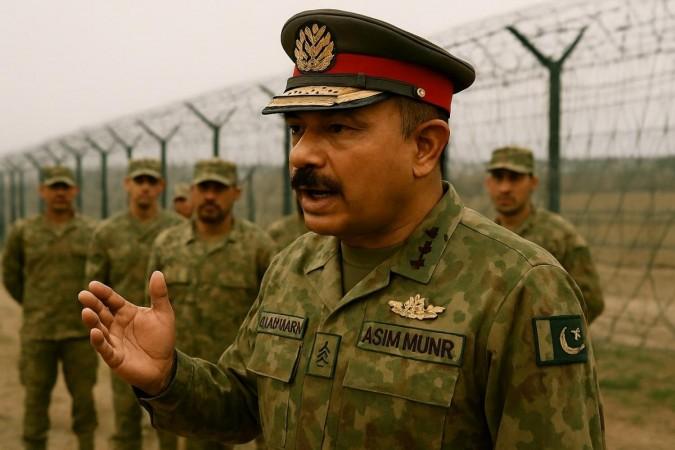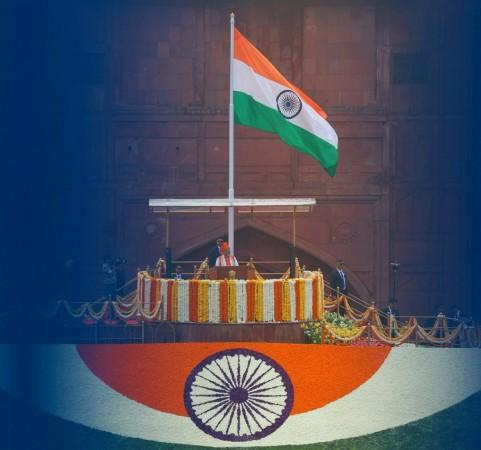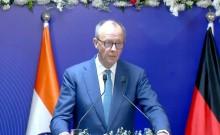
The Tehreek-e-Taliban Pakistan (TTP) has become Pakistan's biggest security headache. Created by the Inter Services Intelligence (ISI), today the Pakistan establishment fights the terror outfit regularly.
On Pakistan's Independence Day, the TTP carried out a series of attacks across the districts of Khyber Pakhtunkhwa (KP).
In all six districts, policemen were killed and nine others were injured in eight simultaneous attacks.
Attacks took place in the Upper and Lower Dir, Bannu, Hassan Khel and Shangla.
The TTP, while claiming the attack, said that this was part of their ongoing campaign to weaken the security establishment in Pakistan.
Over the years, the TTP has become one of the most dangerous terror groups in the world.
The Global Terrorism Index 2025 ranks it as one of the deadliest terror organisations in the world. Along with the Islamic State, Jamaat Nusrat Al-Islam and Al-Shabab, the TTP was responsible for most deaths globally for the year 2024.

Data shows that in 2024 alone, these groups were responsible for the deaths of 4,300 people.
In Pakistan alone, the TTP is responsible for 90 per cent of the attacks. In 2024, out of the 1,081 deaths due to terror, the TTP alone was responsible for 558 deaths.
The ISI created TTP to create a divide within the Afghan Taliban.
While it had remained loyal at first, over the years, it has turned very badly against the ISI. The other headache for Pakistan is that, like the Balochistan Liberation Army (BLA), the TTP has systematically targeted Chinese interests in Pakistan as well.
While the intent was to divide the Taliban in Afghanistan, the ploy misfired for the ISI and Pakistan Army.
The TTP is now heavily backed by the Afghan Taliban, thus making the outfit even more lethal. In fact, the terrorists who carried out the Independence Day attack had infiltrated from Afghanistan.
Pakistan had managed to curb the activities of the TTP to a large extent. However, there was a resurgence, and since 2021, its activities are on in full swing, which the Pakistanis are unable to control.
The shifting of its activities entirely to the Khyber Pakhtunkhwa region is also one of the reasons why the outfit has become even more lethal. This region is on the northern border with Afghanistan, and hence getting in and out of Pakistan is relatively easier for the TTP operatives.
The backing of the Afghan Taliban is also an added advantage for the TTP.
Before 2020, the Pakistan military campaign 'Operation Zarb-e-Azb' was launched. This operation broke the back of the TTP as its entire leadership was removed.
However, after the US withdrew from Afghanistan, the TTP saw this as an opportunity. With Afghanistan being largely peaceful, it moved its operations to Pakistan.
It brought together several splinter groups that had broken away and rebuilt the terror group.
Along with the Taliban, Al-Qaeda too had backed the TTP.
The Pakistan establishment has fallen out largely with the Taliban due to this factor. Pakistan accuses the Taliban of backing the TTP, and this has not gone down well in Kabul.
Irrespective of the relations between Pakistan and Afghanistan, the TTP has said that it will not back down. In fact, it released an infographic this month stating that it had killed 139 Pakistani soldiers in July 2025.
To make matters worse for Pakistan are the sophisticated weapons that it has been using. Most of the weapons it has been using at the ones left behind by NATO during the withdrawal.
During the Independence Day attack in Pakistan, it used drones along with its conventional weapons to carry out the eight attacks.
The United Nations says that the TTP has 6,500 fighters and is looking to add more to its ranks.
The UN says that the TTP could transform into an umbrella group for other terror organisations. There have been talks of a merger between the TTP and the Al Qaeda in the Subcontinent (AQIS), and this could make the outfit even more lethal.
(With inputs from IANS)

















